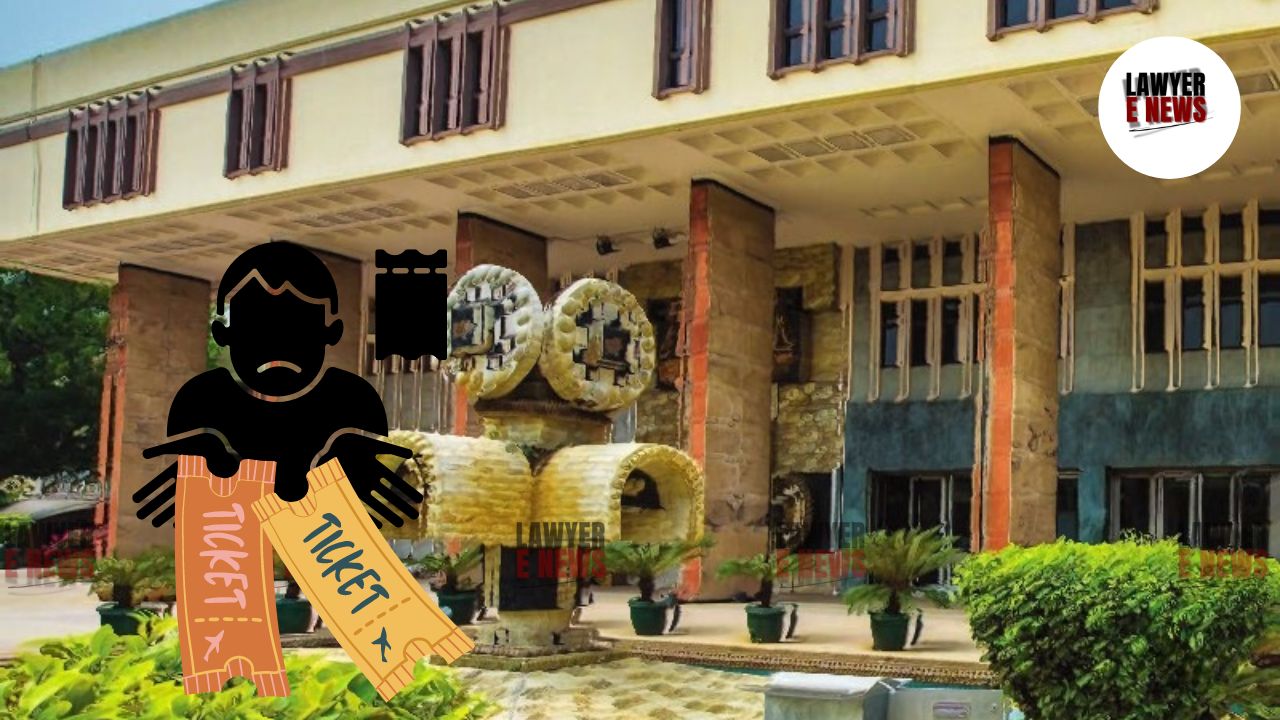-
by Admin
15 February 2026 2:36 AM



The Delhi High Court on September 5, 2024, overturned a Railway Claims Tribunal's decision denying compensation to the family of Rajbir Singh, a government employee who died in a railway accident. The court ruled that despite the absence of a recovered train ticket, Singh was a bonafide passenger and entitled to compensation under the Railways Act, 1989. Justice Manoj Jain emphasized that in such cases, the "rigors of the law" should not defeat the welfare purpose of the statute.
Rajbir Singh, employed with the Indian Postal Department, died on November 5, 2011, after falling from a heavily crowded train near the Tilak Bridge Railway Station, Delhi, while attempting to board. Witnessed by an on-duty Railway Protection Force (RPF) constable, Singh lost his balance due to a sudden jerk, colliding with a platform pole. His legal heirs, including his widow Bhateri, filed a claim under the Railway Claims Tribunal Act, 1987. However, the tribunal rejected the claim, citing the absence of a valid ticket and concluding that Singh was not a bonafide passenger.
The court addressed the key issue of whether Singh was a bonafide passenger, despite no ticket being found on his body. Under Section 2(29) of the Railways Act, 1989, a "passenger" is defined as someone traveling with a valid pass or ticket. However, Justice Jain observed that in cases involving fatal railway accidents, it is "not always possible" for victims’ families to provide definitive proof of ticket possession.
The court criticized the Railway Claims Tribunal for adopting a rigid interpretation of the law, stressing that the Railways Act is a "beneficial and welfare statute." Justice Jain highlighted that such statutes must be interpreted with "some degree of flexibility" to serve their social purpose. The court stated, "The rigors of law cannot be permitted to defeat the very objective of the provisions."
Evaluation of Witness Testimonies: Constable Chander Pal, who was on duty during the incident, initially claimed to have witnessed Singh's fall, stating that the victim struggled to board the overcrowded train and fell after a sudden jerk. Despite discrepancies in his testimony, the court relied on the consistency of his earlier statement and the report of the Railway Protection Force. The court also noted that several documents were scattered at the scene, suggesting that the victim's ticket could have been lost in the chaos of the accident.
The court applied the principle of "preponderance of probabilities" in determining whether Singh was a bonafide passenger. Justice Jain referred to precedents set in Union of India v. Rina Devi (2019), where the Supreme Court ruled that failure to recover a ticket in a fatal accident case should not automatically disqualify the claim for compensation. The court concluded that the absence of a ticket did not negate the family’s claim, especially given the overwhelming evidence that Singh had indeed boarded the train.
The court reiterated that liability under Section 124-A of the Railways Act is based on strict liability, meaning compensation can be claimed regardless of any contributory negligence. Justice Jain noted, "Injury in the course of boarding or deboarding a train will be considered an 'untoward incident' entitling the victim to compensation."
Justice Manoj Jain remarked, "The evaluation of evidence should be in consonance with the objective sought to be achieved by the Railways Act, which is welfare-driven. The absence of a ticket must not be treated as a blanket disqualification when the incident clearly aligns with the definition of an 'untoward incident.'"
By allowing the appeal and directing the Railway Claims Tribunal to determine compensation, the Delhi High Court reaffirmed the purpose of the Railways Act as a social welfare statute. The judgment underscores the importance of a liberal and victim-friendly interpretation of laws designed to provide financial relief to families affected by railway accidents. This decision will likely serve as a precedent for similar cases where a victim's bonafide passenger status is questioned due to the absence of a recovered train ticket.
Date of Decision: September 5, 2024.
Smt. Bhateri & Ors vs Union of India
